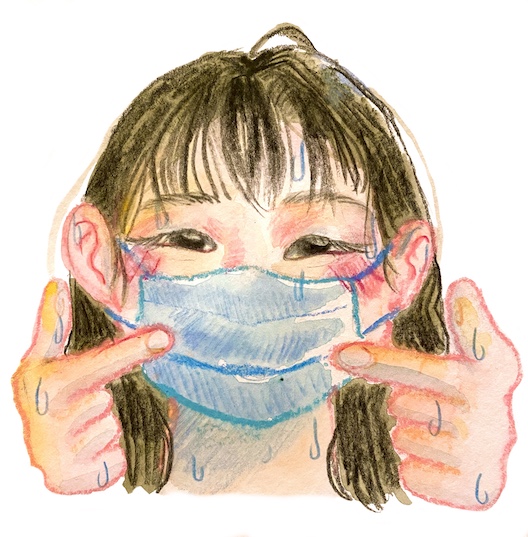Mask wearing is not new—we’ve been doing this for decades
September 11, 2020
Face masks were mostly associated with East and Southeast Asia during the pre-COVID-19 era (which I now dub PCE). They helped filter out air pollution or, for motorcycle riders, vehicular exhaust. Cloth masks kept faces warm in the winter. People, especially women, used face masks on days when they didn’t want to wear makeup. And of course, face masks were used when one was feeling sick and wanted to be polite to those around them. People even wore masks to protect their identities during protests, such as the ones happening in Hong Kong. Face masks were so ubiquitous that shops sold them as fashionable accessories. You could get Hello Kitty on your face!
In summary: people have worn face masks for less pressing reasons than a pandemic.
In many countries, mask-wearing is now compulsory to combat the pandemic. Singapore, where I live, is one such country. We have been wearing our masks outside in the 80-to 90-degree Fahrenheit tropical country heat since April and will continue doing so for at least the rest of the year. Singapore is tropical all year round, but most of the United States has it better. When it transitions into fall, you’ll sweat less, and face masks will be more comfortable. I wore a face mask last fall while on campus, and I can promise it’s 100 times cooler on your face in the fall than when it’s hot outside.
I know it’s tempting to remove your mask when people aren’t looking or when you feel that you are an adequate distance from others. But please remember that mask-wearing is about protecting others rather than yourself, especially if you’re asymptomatic. The Atlantic mentioned three recent studies showing that “nearly half of patients are infected by people who aren’t coughing or sneezing yet.” We can reduce this number by being vigilant and preparing for the worst-case scenario, and that means our masks must stay on.
This is about the community. Not just Bowdoin’s campus community, but the communities we occupy as we study remotely.
According to the CDC, Native Americans and members of the Latinx community are 2.8 times more likely than white people to contract COVID-19. Black people are 2.1 times more likely to die from COVID-19 than white people. If you consider yourself an ally to BIPOC (Black, Indigenous and people of color), please wear your mask. Please continue washing your hands. Please continue social distancing.
Also, if you’re on campus, don’t make Residential Life (ResLife)—or anyone else, for that matter—come after you. They’re not social distancing ambassadors; they’re also students, and they’re also suffering through the pandemic. It shouldn’t be their job to constantly tell you to stay six feet apart when you’re eating lunch outside. Even though Bowdoin is a small school with only a handful of cases—right now, at least—that’s no reason to be complacent. The work we do to protect others must remain constant. Many first-generation, low-income students and international students are relying on Bowdoin’s campus remaining open to tide through at least the first half of this semester. The last thing we would want is an abrupt shutdown and a replay of March.
It can be discouraging if people around you are not wearing their masks or are acting as if the pandemic is not real and rampaging right now. We can’t let them get to us. Every individual effort—to maintain a safe distance from others, to keep masks on and so on—makes a difference. We’re normalizing best practices and making the community around us that much safer. If the United States prioritized public health and community values over capitalistic self-interest, the future could be so much brighter.
I hope the experiences we take away from this pandemic survive beyond it. Though students often joke about how Bowdoin is a petri dish during flu season, that doesn’t have to carry forward into the post-COVID-19 era. Let’s normalize wearing a mask to class when you’re sick. Let’s vote for long-lasting policy changes and universal healthcare. Let’s normalize putting community health first.
Kirstin Yip is a member of the Class of 2023.


Comments
Before submitting a comment, please review our comment policy. Some key points from the policy: